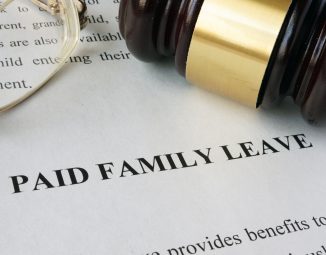NEW NETFLIX ORIGINAL: “UNLIMITED” PARENTAL LEAVE
Netflix, a pioneer in on-demand internet streaming, is well-known for its “Netflix Original” series—and has recently added “unlimited” parental leave to its line-up. On Tuesday, August 4, 2015, Netflix announced a new maternity and paternity policy that permits new parents to take an unlimited amount of paid leave during the first year after the birth or adoption of a child. Under the new policy, employees are able to return to work on either a part-time or full-time basis following the birth or adoption of their child, and following their return to work employees can take additional time off, with pay, as needed. Employees who exercise their right to unlimited parental leave will receive their normal rate of pay and company-provided benefits.
Netflix’s new “unlimited” leave policy is among one of the most generous policies in the United States. Currently, employers subject to the federal Family and Medical Leave Act (FMLA) are only required to provide new parents with up to 12-weeks of unpaid leave. At present, only three states—New Jersey, Rhode Island and California—and the District of Columbia have laws that provide paid time off to employees for the birth or adoption of a child. For example, under the New Jersey Paid Family Leave Act, employees can apply for state sponsored insurance benefits which allows for up to 6 weeks of partially paid leave to bond with a newborn baby or to take care of a sick family member.
Netflix’s new policy will likely set a trend for companies located in Silicon Valley and in other tech-heavy fields, where competition for highly-skilled talent is fierce! Microsoft has already “responded” to Netflix’s new policy by announcing a policy change of its own which includes enhanced paid leave for new parents. Several tech companies have policies that provide more generous parental leave benefits than those required by the FMLA:
- Just one day after Netflix’s new policy was announced, Microsoft modified its leave policy to provide new mothers with up to 20 weeks of paid leave and up to 12 weeks of paid time off for non-birth parents.
- Vodafone, a global telecommunication company, provides up to 16-weeks of paid maternity leave.
- Pharmaceutical giant, Johnson & Johnson, recently changed its leave policy—providing new mothers with up to 17 weeks of paid maternity leave and new fathers with at least 9 weeks of leave.
- Other companies in the technology field also provide more generous leave than what is mandated by federal law: new parents at Facebook are allowed up to 4 months off and Apple employees are given up to 14 weeks of maternity leave and 6 weeks of paternity leave.
These companies are by far the exception, rather than the rule. The United States lags far behind other world leaders when it comes to government mandated parental leave. According to statistics released by the Organization for Economic Cooperation and Development (OECD), as compared to 37 other countries, the U.S. offers the least amount of federally-protected time off for new parents. In comparison, Estonia’s government mandated leave benefits, which are the most generous, permits new parents to take up to 180 weeks of job-protected leave, with 108 weeks of paid leave.
While “unlimited” parental leave will most likely continue to be an outlier, employers interested in attracting and retaining top talent—especially millennials, who are more focused on achieving a work/life balance—will need to rethink their parental leave benefits to remain competitive.



